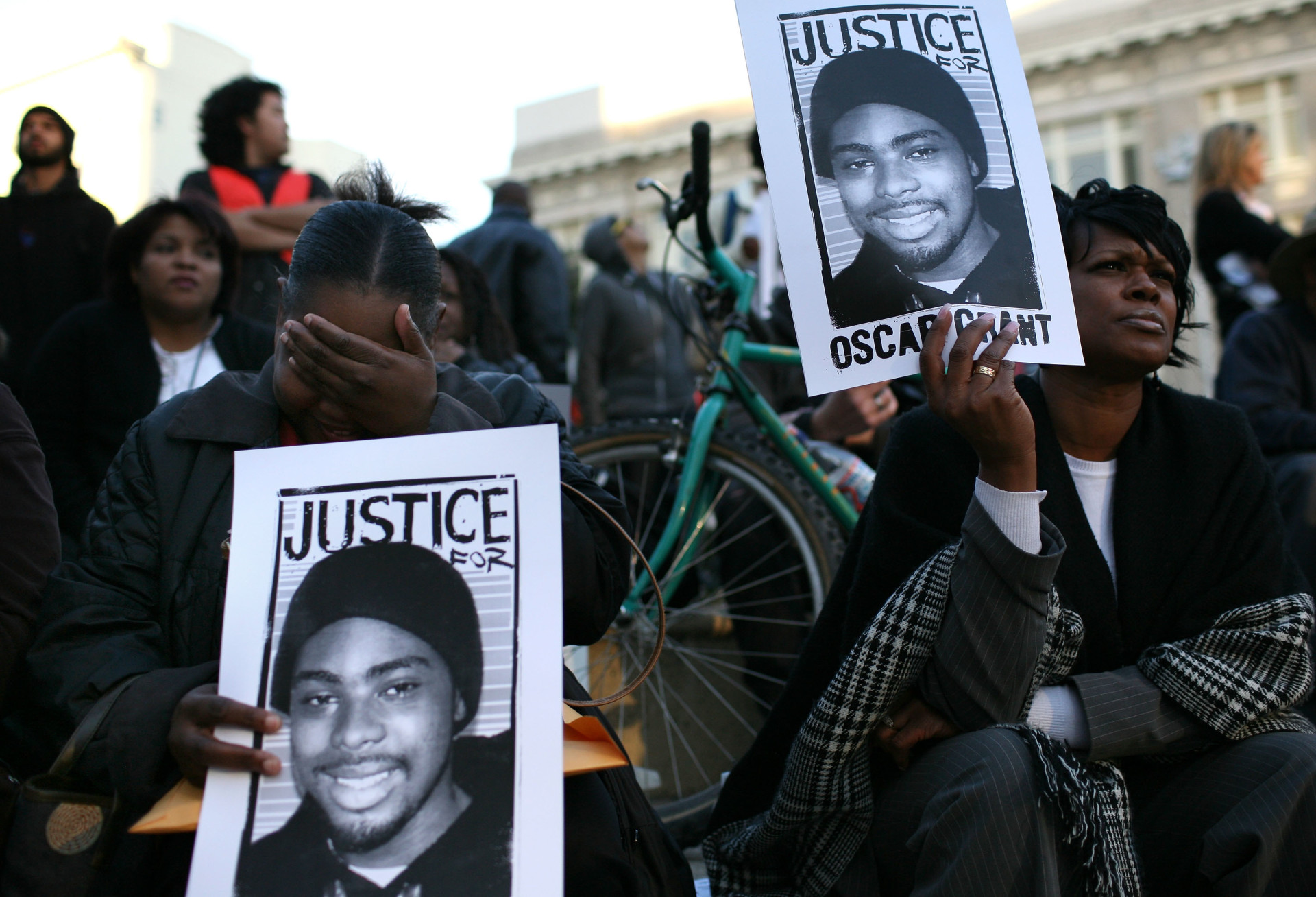“It will give us a sense of peace and closure to really know that BART is working not only with the community, but with the family, to say that they do not want this to ever happen again,” said Wanda Johnson, Oscar Grant’s mother.
Social Media Comments Generate Anger
Recently, Grant’s family accused a BART director of stoking racial tensions around their work to honor Grant.
The same powerful tool of social media that amplified the story of his death, they said, was now being used to vilify the plans to memorialize his life.
After a San Francisco Chronicle article reported on the family’s work with BART to create a memorial, BART Director Debora Allen posed a question on Facebook last week. “BART is placing a permanent art mural at the Fruitvale station honoring Oscar Grant,” she wrote in the now-deleted post. Allen’s Facebook post continued, “It did not appear on a Board agenda. The family also wants the station and a street named after him. Should BART ever memorialize or name stations after individuals? Your thoughts?”
The responses that came in included racist remarks about Grant. At a BART board meeting on Dec. 6, Johnson spoke to Allen directly.
“You knew, without a shadow of a doubt,” that the post “would cause racial comments to be put there,” Johnson said pointedly. “You have hurt my family tremendously,” she said, her voice shaking. “For my 13-year-old granddaughter to see all the rude posts. What you have incited is absolutely unacceptable.”
Minister Keith Muhammad, who has supported the family since Grant’s death, said that while the social media post may appear innocuous, “quite frankly it was a dog whistle.” Especially, he added, “if you just consider the community that director represents.” Allen represents East Bay suburbs, including Walnut Creek and Danville, where many residents are wealthier and less diverse than in some of the other territory BART covers.
At the meeting, Allen responded directly to the family. “My intent was to talk about policy with this post,” she said. “There was no other hidden motive to divide people, to attack people, or to get people to attack people.”
“Over a few days’ time, the comments on that post became really a very unhealthy debate with people attacking each and calling each other racist,” Allen said, adding that is why she deleted the post.
“I believe my original question was, and still is, a valid public policy question,” she said, acknowledging that the context was mistaken. “I offer you my sincerest apology for the outcome of that post, and for any harm or grief that I’ve caused any of you to feel.”
But Cephus Johnson, Grant’s uncle, known to many as Uncle Bobby, said that an apology with an excuse did not feel like a true apology. “Mehserle offered excuses for why he murdered Oscar, too,” he said.
Another BART director, Bevan Dufty spoke strongly against Allen’s post, calling it a “terrible mistake.”
“All of us who run for office, we know the hate that exists in this country, and to open up a poll and blanket people about a subject like this?” Dufty asked. “If you want to ask people if they want more straphangers in a rail car, I think that’s dandy.”
“But to ask this question, really begged a terrible thing,” Dufty added.
Next Steps for the Project
While the design of the mural is not yet finalized, a contract has been signed with Oakland native and artist Senay Dennis, also known as Refa One.
Dufty said it was part of the responsibility of BART officials to acknowledge what happened 10 years ago. He said he feels the need to “recognize how important it is to have a station named for somebody, somebody who will be recognized 100 years from now, as Rosa Parks was remembered,” he said. “Someone whose life was taken from them unjustly.”
BART Director Lateefah Simon has also supported the Grant family’s wishes to remember Oscar. Simon ran for the BART board, in part, because of Grant’s death.
The full board has not publicly discussed or signed off on the mural or other possible memorials. That is in part because the full board does not need to sign off on projects under $150,000. The mural project is expected to cost $30,000.
The proposal to rename the station and to place a commemorative plaque are not yet on any BART board agenda.
